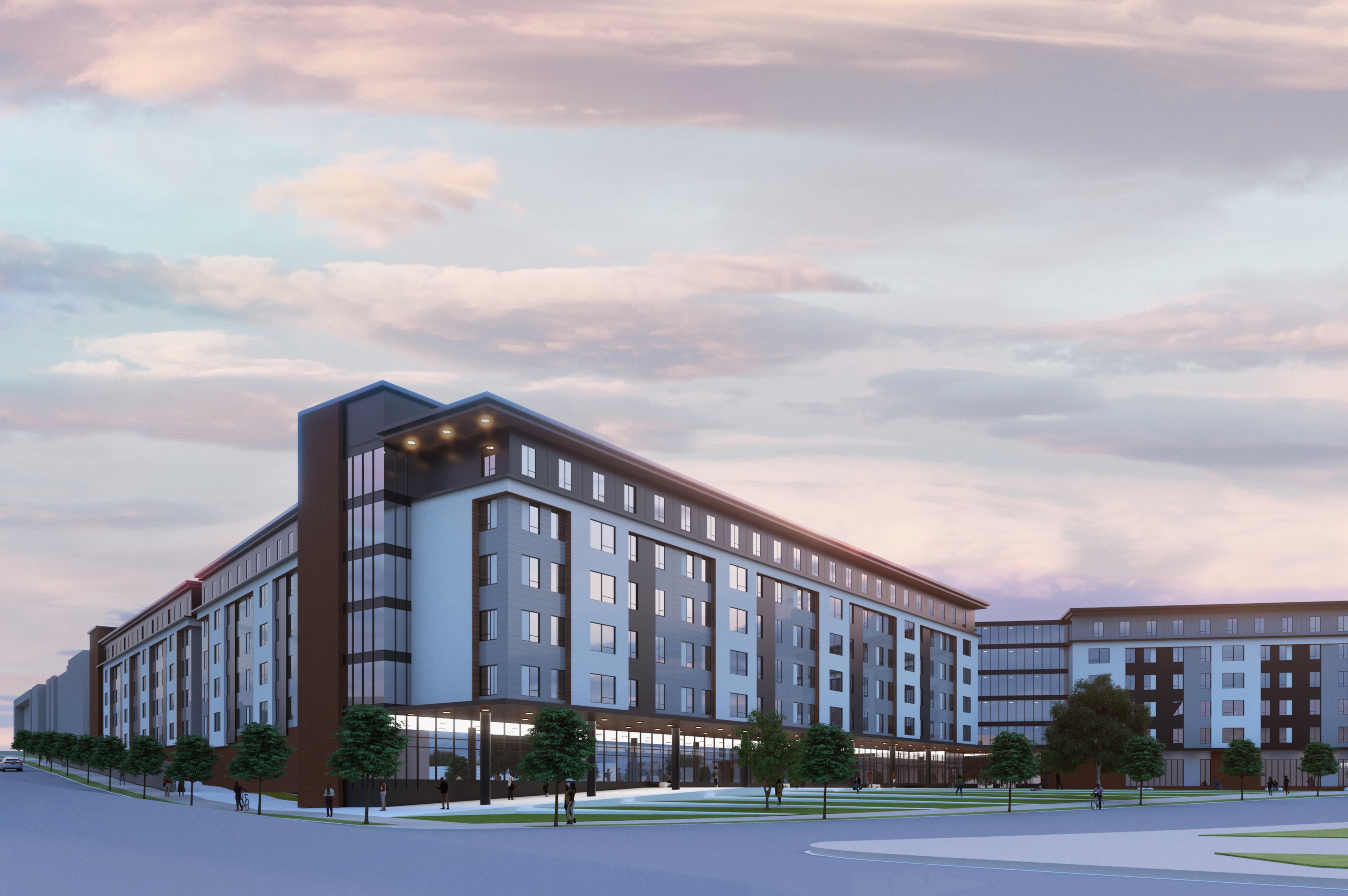Front Porch Project opens doors to equity and opportunity

In Atlanta, the legacies of the Rev. Martin Luther King Jr. and former President Jimmy Carter stand as beacons of hope and progress. King envisioned a “beloved community,” a place where justice, equal opportunity and love for one another create a thriving, interconnected society. He reminded us that we are “tied in a single garment of destiny,” emphasizing the prosperity of one directly influences the well-being of all.
LISC Atlanta is proud to build on this mission through the Front Porch at Auburn Avenue, an initiative that honors this vision and paves the way for greater economic opportunity and connected communities.

At the heart of the Front Porch Project is the Historic District Development Corp., founded by Coretta Scott King in 1980. This Black-led community development organization has worked tirelessly to revitalize Atlanta’s Sweet Auburn Historic District — once the epicenter of Black economic, civic and social life. Now, through a powerful blend of collective action and strategic investment, the Front Porch Project is bringing new energy and opportunities to the community.
This 101,135-square-foot mixed-use development is more than just a construction project; it’s a promise to the people of Atlanta. It ensures equitable access to housing, enterprise and community programming while preserving the rich history of the neighborhood.
The Front Porch Project provides critical housing resources, offering 25 co-living units with 57 rentable bedrooms and 15 one-bedroom units for individuals earning 60% to 80% of the area median income. This effort contributes to Atlanta’s “Quality Housing for All” initiative to build 20,000 units to address Atlanta’s severe housing shortage — currently estimated at more than 100,000 homes. It offers relief to the more than half (54.4%) of Atlanta-area renters who feel cost-burdened, as identified by the Atlanta Regional Commission. Additionally, the project creates pathways to homeownership, with 14 for-sale condo units available for those earning 80% to 120% of the median income, helping legacy residents and minority homebuyers build generational wealth.
The Front Porch Project also empowers small businesses. With 80% of retail tenants expected to be minority-owned businesses, the project fosters entrepreneurship and economic empowerment. Metro Atlanta is home to approximately 10,689 Black-owned businesses, second to New York at 16,506, representing 34.2% of the area’s Black population, or the fifth-highest share in the nation. Meanwhile, Black entrepreneurs are denied credit nearly twice as often as white business owners. The Front Porch Project aims to bridge these gaps, ensuring the community continues to thrive.
LISC Atlanta has a proven track record of creating networks of mutual support and shared prosperity. With $152 million invested, $537 million leveraged, 1,693 affordable homes and apartments created and more than 623,000 square feet of commercial space developed, the impact is clear.
A $1.5 million contribution from the Community Foundation is further strengthening small businesses and addressing systemic issues affecting Atlanta. Currently, Atlanta only has child care capacity for two-thirds of its children under the age of 5. Based on U.S. Census data, this means that out of 25,468 children under 5 years old, nearly 17,000 children are not getting the child care they need. The Community Foundation’s investment will help provide no-cost, pre-K education, ensuring parents can remain in the workforce, strengthen educational outcomes for children and build a brighter future for their families.
Research from the Frank Porter Graham Child Development Institute shows these programs have a tremendous positive impact, improving language and literacy rates by 9.2% in pre-K and 4.8% in the fourth grade. A study by the Metro Atlanta Chamber revealed that addressing the child care shortage in Atlanta could make the state economy $2 billion stronger each year. This underscores the importance of the Community Foundation’s flexible loan program, which empowers organizations such as LISC to remove barriers and level playing fields.
Further, these funds will also fuel innovation, including an auto restoration business that is expanding into electric vehicle conversions and the transformation of the Cobb County Fire Station into a job training hub.
The bottom line is that access to capital enables access to equity, opportunity and progress. Resources such as these bring King’s vision to life, ensuring Atlantans have access to affordable housing and economic stability and the chance to realize their dreams.
As Carter said, “The best way to enhance freedom in other lands is to demonstrate here that our democratic system is worthy of emulation.” The work being done in Atlanta through LISC and HDDC embodies this ideal in action. Investing in our communities is investing in our shared destiny — and the time to act is now.
Dale Royal is executive director of LISC Atlanta, the nation’s leading community development investment organization.


